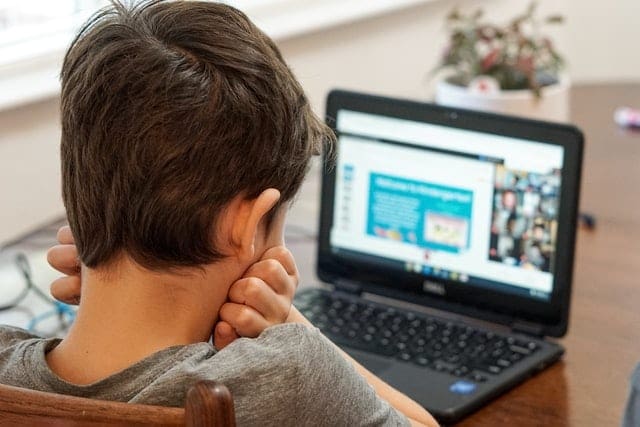Coronavirus: Supporting Your Child with Disabilities

By Jane Lomas, M.S., CCC-SLP
Changing Tides
How are children with disabilities affected by the Covid-19 crisis, and what impact will it have on their progress in academic, social, and daily living skills? Most importantly, what can parents do today to help their special-needs kids get through this tough and unpredictable time?
If you have a child with disabilities in your household, you understand all too well the challenges of navigating daily schedules, virtual learning, reduced social interaction, and decreased contact with the outside world. Children with disabilities have an even greater need for routine and structure than typically developing children.
Participating in virtual school and videoconferencing for services requires a great deal of flexibility. Parents and caregivers are required to stretch their limits with time and resources in order to guide their kids through multiple days of virtual learning, blocked school schedules and hybrid school plans.
Many families within CTP and across other service domains are participating in speech and language, physical therapy and occupational therapy via videoconferencing. We applaud our clients who have stretched themselves — parents and children alike — to dive into the world of Zoom meetings, screen sharing, and the occasional glitchy Internet connection!
As schools are closed or offering limited in-person hours, children who are accustomed to SPED and the world of therapy are coming up short on much needed structure and supports.
Many families have lost access to therapies, peer modeling, aides, daily skills enrichment and a structured, nurturing environment.
Survival Strategies
So, what can you do as the parent or caregiver of a child with disabilities during the Coronavirus pandemic?
- Make sure you understand your child’s rights under IDEA. (see Office of Special Education Programs: About OSEP)
- Talk with your school about how to arrange the maximum number of hours of person-to-person learning your child can access weekly.
- Your child might not understand why schools are closed. Explain things in simple terms that your child can comprehend and the importance of staying healthy.
- Changes in routine might be confusing for your child and lead to feelings he or she can’t describe, like fear and worry. Talk to your child about these emotions.
- Maintain as much structure as possible in your child’s day by following consistent schedules for wake-time, meals, play, schoolwork, chores, physical activity and bedtime.
- Involve your child in daily living activities, such as setting the table, taking out the trash and feeding pets.
- Consider routine household tasks as opportunities to enrich your child’s learning and independence by slowing down, including them in the process, and embracing the teachable moment.
- Your child might miss friends and family. Stay connected by phone, video chat or other electronic means.
Finally, the Mayo Clinic reminds us that “parenting a child with special needs or chronic conditions during the COVID-19 pandemic requires drawing on your strengths and returning to the basics.” Parenting children with special needs during COVID-19
Hang in There
Above all, remember that these are unprecedented times and that you are doing the best that you can for your child. Be kind to yourself in knowing this, too, shall pass. Connect with other parents and caregivers that are sharing this challenging experience, and don’t forget to give yourself a pat on the back for all you do for your wonderful child every day!

